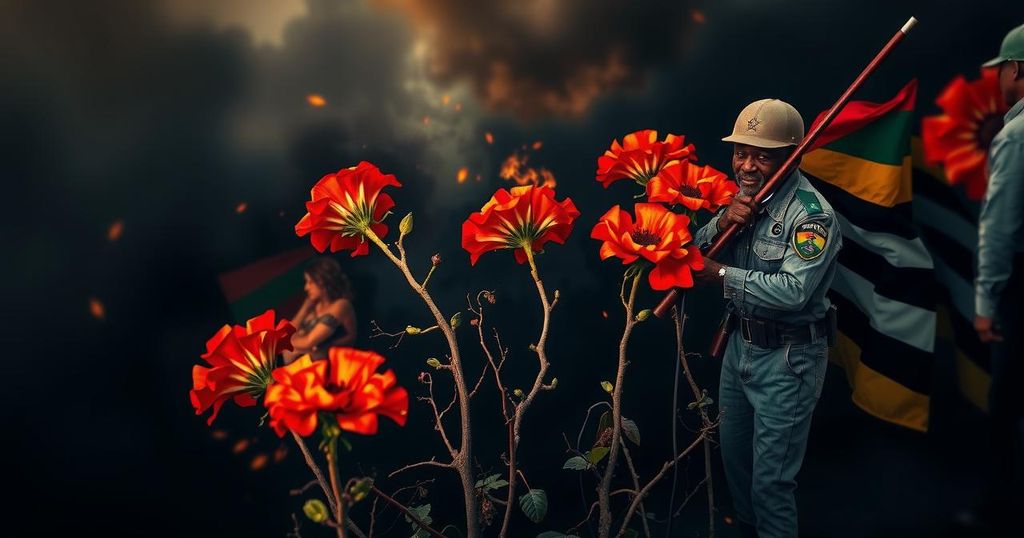Mozambique’s Post-Election Violence: A Deepening Crisis for Southern Africa

Mozambique is experiencing severe post-election violence following a disputed election deemed fraudulent by many. The unrest has led to numerous casualties and widespread protests against the ruling party. The Southern African Development Community is set to convene to address the situation amid calls for action from human rights organizations, as the unrest poses broader threats to regional stability and humanitarian conditions.
The recent post-election unrest in Mozambique has escalated following a disputed election on October 9, resulting in significant civil turmoil. Civil society organizations report at least 20 fatalities and hundreds of injuries as protests erupt nationwide against the ruling Front for the Liberation of Mozambique (Frelimo) and its presidential candidate Daniel Chapo, who was declared victor amid allegations of electoral fraud. The violence catalyzed further dissent, particularly following the assassination of opposition figures in Maputo, prompting regional leaders to address the ongoing crisis. In response to the escalating violence, the Southern African Development Community (Sadc) has scheduled an extraordinary summit between November 16 and 20, specifically to evaluate the situation in Mozambique. Human rights activists have characterized the recent events as a humanitarian crisis, noting alarming statistics such as the reported arbitrary detention of nearly 800 individuals and systematic police brutality in regions like Nampula and Niassa. South African officials have reacted by temporarily closing major border points with Mozambique, cautioning citizens against travel due to security concerns. The crisis has broader implications for the region, as southern African nations heavily rely on Mozambican ports for fuel and essential goods. Mozambique has long grappled with conflicts, including insurgencies in the Cabo Delgado province and the destabilizing effects of climate change-induced droughts. Human Rights organizations are demanding an end to government-imposed internet restrictions that hinder critical access to information and impede peaceful assemblies during this turbulent period. Activists call for robust interventions by regional and international bodies to restore order and promote human rights in Mozambique.
The current upheaval in Mozambique is set against a backdrop of longstanding political instability characterized by contested elections and civil strife that dates back to the late 1970s. Following independence from Portugal in 1975, the Frelimo party has dominated the political landscape, frequently facing allegations of electoral misconduct. The recent elections, marred by claims of fraud and violent suppression of dissent, have catalyzed civilian protests, leading to significant concerns about human rights and governance in the region. Moreover, the country is also afflicted by a humanitarian crisis due to drought conditions affecting millions across southern Africa, exacerbating the need for effective leadership and regional cooperation.
In summary, the violence following Mozambique’s disputed elections highlights deep-seated political challenges and raises urgent humanitarian concerns. The situation necessitates immediate regional and international intervention to address the escalating violence, restore democratic integrity, and safeguard human rights. As communities continue to protest against government oppression and corruption, the ramifications of this crisis are likely to extend beyond Mozambique, affecting regional stability and economic viability in Southern Africa.
Original Source: www.theeastafrican.co.ke







